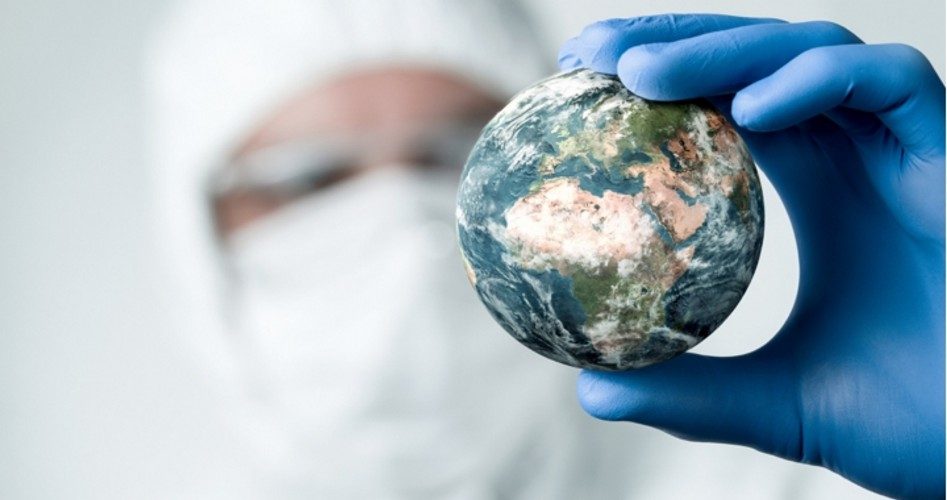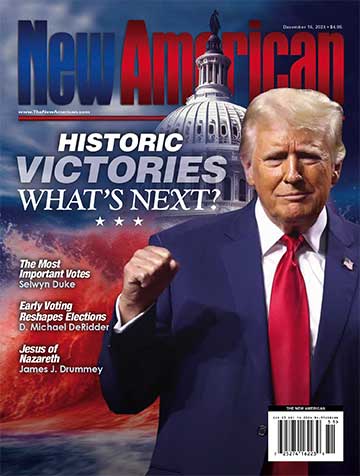
In a paean to globalism that flew under the radar of most conservative media, a factotum for the Bush Empire has argued for more globalization after the Chinese coronavirus pandemic ends.
Matthew Rooney, managing director of the George W. Bush Institute-SMU Economic Growth Initiative, does not believe the Asian pathogen is the inevitable result of open borders and free trade.
Rather, he averred, globalization is the future of these United States.
The problem? He argues from authority, and his glib, easily-refuted claims ignore or contradict history.
{modulepos inner_text_ad}
Isolation Won’t Protect Us
Thanks to the Chinese Virus, Rooney lamented, “there is a rising chorus of voices who argue that we must deglobalize, dismantle international supply chains, reduce international trade and travel, and close our borders to the world.”
Tempting as that is, he wrote, “what was true before coronavirus will still be true afterward: Wealth comes from communication, collaboration and competition. Security comes from cooperation that limits the scope for conflict.”
In other words, absent globalization, we’d be broke.
The approach to globalization promoted by the United States over the past 70 years operationalized this insight by freeing markets for goods and services from government interference, opening greater scope for individuals to decide for themselves what to buy and where to travel and even, within tighter limits, where to live and work. This flowering of human freedom led to the greatest reduction in poverty and the greatest decline in interstate conflict in human history.
Ignoring the bureaucratic neologism “operationalized,” those myriad fallacies provided Rooney a route to his point: “The danger of a pandemic did not arise because of globalization.” He continued:
Pandemics have appeared periodically throughout history. Deglobalizing will not protect us from pandemics in the future. On the contrary, we will ultimately come to see that global cooperation is key to responding successfully to pandemics.
Beside arguing from authority, Rooney assumed a globalist utopia in which governments are honest; i.e., “cooperation” implies honesty in the “communication” he so highly values.
But governments lie, just as the Chinese communists lied about the deadly microbe their virology lab may have unleashed upon the world. Just as our British allies did when they planted agents of influence to prod U.S. entry into World War II. Just as FDR lied to American about Pearl Harbor. Just as LBJ lied about the Gulf of Tonkin.
Globalization A “Source Of Wealth”?
Beyond that, globalization is not, as he claimed, the “source of wealth that enables us to ensure the availability of healthcare, temporary lodging, emergency response, quarantine facilities, and all the other myriad tools required.” Nor, as he argues, is the “innovation that globalization promotes” required “to produce the vaccines that will inoculate against the virus.”
Rooney confessed that “globalization shares responsibility for the coronavirus pandemic” because “the wealth created by globalization” enabled the travel that spread the pathogen. But the “backlash” that has provoked calls “to bring manufacturing back home and put the brakes on immigration, whatever the cost” is “dangerous.” He added:
“Make it here at home” has a nice ring to it, but we must have no illusions: Restricting trade and using taxes, tariffs and subsidies to manipulate the market can only be done by dramatically reducing freedom. That path leads to poverty.
In the case of most disasters as in the case of this one, the country’s “source of wealth” is the American people, who, by and large, produce their wealth as they live and work in their own communities.
American scientists developed the polio, rubella, and measles vaccines long before the era of globalization began in earnest and peaked with the interlocking network of trade and consolidation agreements such as the European Union, World Trade Agreement, and the North American Free Trade Agreement.
Americans drove quality, inexpensive automobiles before globalization wreck the industry.
So American prosperity and even the freedom of Americans do not, as Rooney thinks, depend upon globalization. As columnist Pat Buchanan has frequently observed, this nation’s greatest era of prosperity occurred during the years when tariffs were high.
Not until the era of free trade, open borders, and globalization did this country’s national debt and national and trade deficits — which Rooney didn’t mention — soar to ruinous, unrepayable heights. Americans are chained to debt.
Not until the era of free trade, open borders, and globalization did this country send the production facilities for life-saving drugs to a foreign country, and a hostile one at that — China. Americans depend for drugs on factories in a hostile foreign country they cannot control.
Not until the era of free trade, open borders, and globalization did the United States import millions of low-wage foreign workers and immigrants who have taken jobs from Americans, and worse, not only changed the country demographically but also politically, moved entire states to the radical left by concentrating votes in major urban areas, and thus doomed the chances of conservative candidates to win local, state, and federal public office. Americans who challenge the change are vilified as bigots.
Facts, John Adams said, are stubborn things, which might be one reason Rooney avoided them.
Photo: Nastco/iStock/Getty Images Plus
R. Cort Kirkwood is a longtime contributor to The New American and a former newspaper editor.



